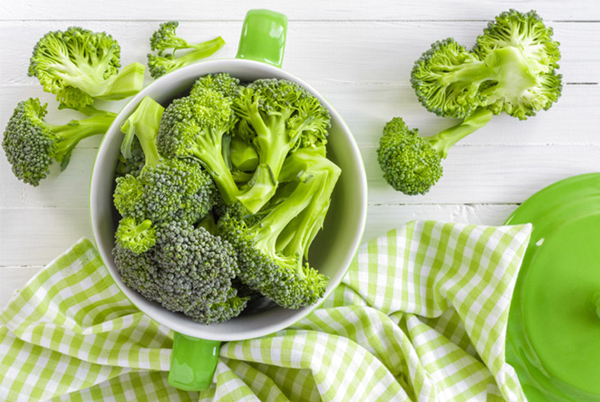Dr. Pawan Sharma
Broccoli belongs to the cruciferous vegetables family which includes cabbage, cauliflower, kale, brussel sprouts, turnips etc. It is a tasty vegetable and rich in dozens of nutrients. Consuming fruits and vegetables of all kinds have long been associated with a reduced risk of many diseases. Broccoli decreases the risk of obesity, diabetes, cancer, heart disease and overall mortality. It is also useful for a healthy complexion and hair, increases energy and lowers body weight. Broccoli is a nutrition powerhouse which supplies lot of nutrients. Broccoli can ensure sound health and long life.
Broccoli has anti-cancer properties. Broccoli has cancer fighting and immune boosting properties like other cruciferous vegetables such as cauliflower, brussel sprout and cabbage. The most important health benefit of broccoli is its ability to fight against the cancer. Broccoli helps for heart health and keeps the blood vessels strong. The sulforaphane in broccoli is also an anti-inflammatory and can prevent the damage of blood vessel linings caused by chronic blood sugar. Broccoli can slow down the damage to joints associated with osteoarthritis. Sulforaphane present in broccoli may help the patients suffering from arthritis because this chemical can block the enzymes that cause joint destruction by preventing a key molecule known to cause inflammation. Vitamin B-complex can help to regulate or reduce excessive homocysteine. Excessive homocysteine, an immuno acid builds up after eating the red meat that increases the risk of coronary artery disease. Like carrot, broccoli is good for eyes as it contains compound antioxidant known as lutein. Another antioxidant present in broccoli is called as zeaxanthin which is also beneficial. Both these chemicals help against macular degeneration, an incurable condition that blurs central vision and cataracts, a clouding of the eye lens.
Poor vitamin K intake is associated with a high risk of bone fracture and osteoporosis. Just one cup of chopped broccoli provides 92 micrograms of vitamin K. Daily adequate consumption of vitamin K improves bone health by improving calcium absorption and reducing urinary excretion of calcium. Broccoli can also contribute to our daily need for calcium by providing 43 milligrams in one cup. Broccoli provides 81 milligrams of vitamin C in just one cup. That is more than what we need in the whole day. The antioxidant vitamin C, when eaten in its natural form can help to fight skin damage done by the sunlight and pollution and thus reduces wrinkles and improves overall skin texture. Vitamin C plays a vital role in the formation of collagen, the main support system of the skin. Broccoli also provides Vitamin A and vitamin E which are also crucial for healthy skin. Broccoli is a good source of beta-carotene. It also contains vitamins such as B1, B2, B3, B6, iron, magnesium, potassium and zinc. One cup of chopped raw broccoli (approximately 91 grams) contains 31 calories, 0 grams of fat, 6 grams of carbohydrate (including 2 grams of sugar and 2 grams of fiber) and 3 grams of protein. One cup of broccoli provides over 100% of your daily need for vitamin C and vitamin K and is also a good source of vitamin A, folate and potassium.
Always buy the fresh, compact, bright, firm textured heads of broccoli with rich flavour. If possible purchase organic broccoli for maximum benefits. Avoid overcooking of the broccoli as it can destroy its half of beneficial substances.
Trending Now
E-Paper


